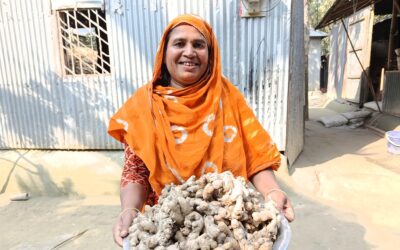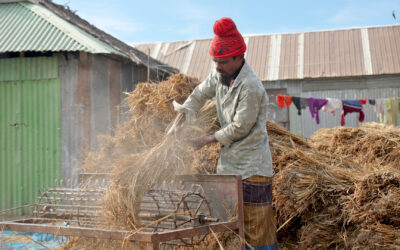As Friendship continues its Friends and Heroes campaign highlighting everyday heroes who work silently at the frontlines of the global challenges that shape our world today, we’d like to introduce you to some of them:
Ambition speaks for itself
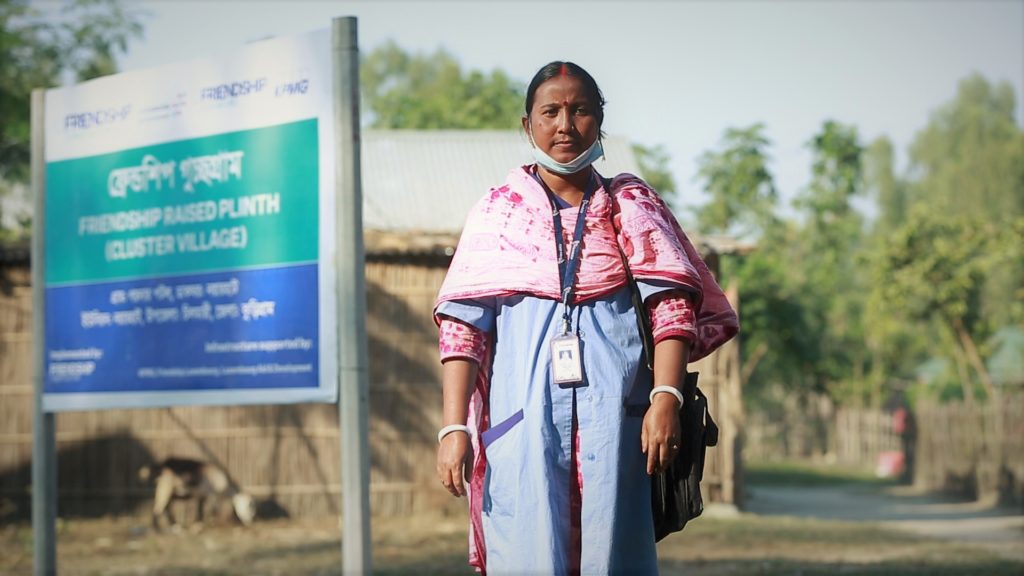
Dipti Rani had a lot of perspective, growing up poor. Smart and sympathetic, she excelled in school, hoping to be educated enough to lift her community out of poverty. Alas, an illegal, but still common practice pushed her into marriage before finishing middle school, and she thought her hopes had been dashed. That was until she signed up to be a Friendship Community Medic-aide. She was recruited and trained to administer essential primary healthcare to her community. She is now a respected member of her community and an earning member of her family.
Keeping kids afloat
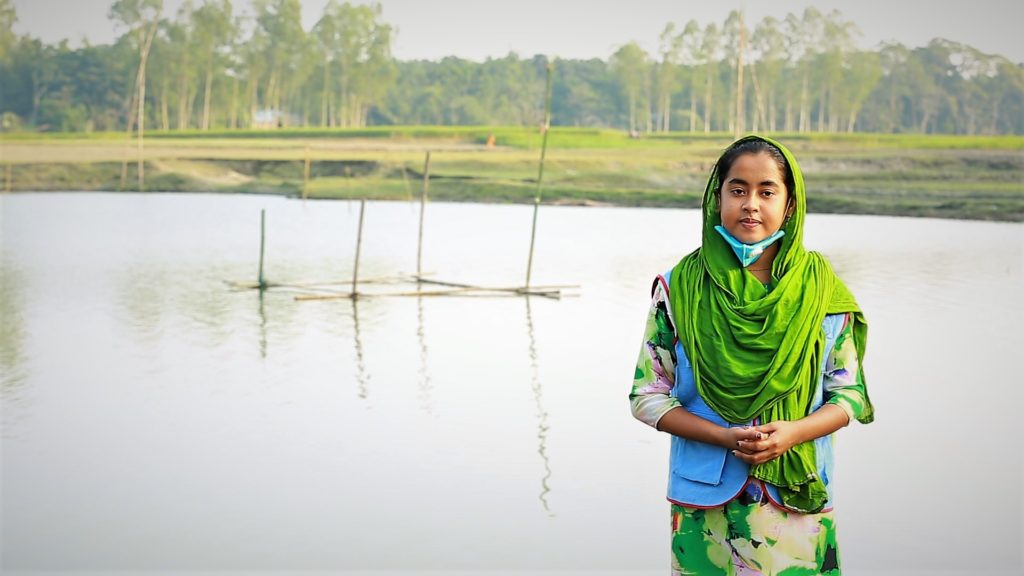
Shantir Char, despite its name meaning island of peace, is all but. Floods come frequently and with force, washing away crops, homes, livestock and often the people that live on these impermanent deltas. Many people, especially children, drown every year, unable to face the current of the waves. That is why Friendship Disaster Volunteer Arifa Akter took it upon herself to identify 210 children who did not know how to swim, and then trained them.
Harnessing collective capacity
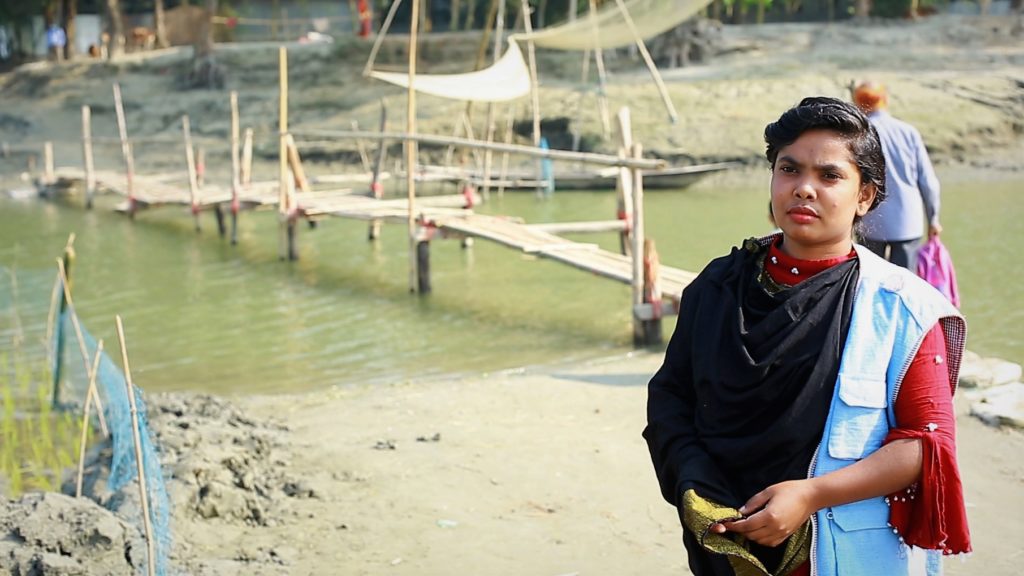
Baishpara is a remote village, on an isolated, impermanent riverine delta where people have to cross the Halhalia river to access even the most basic services. No ferry services exist, and no bridges were deemed a worthwhile investment on these shifting islets. Maksuda Aktar, Friendship Disaster Volunteer team leader thought otherwise, however, and got everyone’s contributions—both monetary and materials, and managed to get a bamboo bridge made, to everyone’s benefit.
First responder
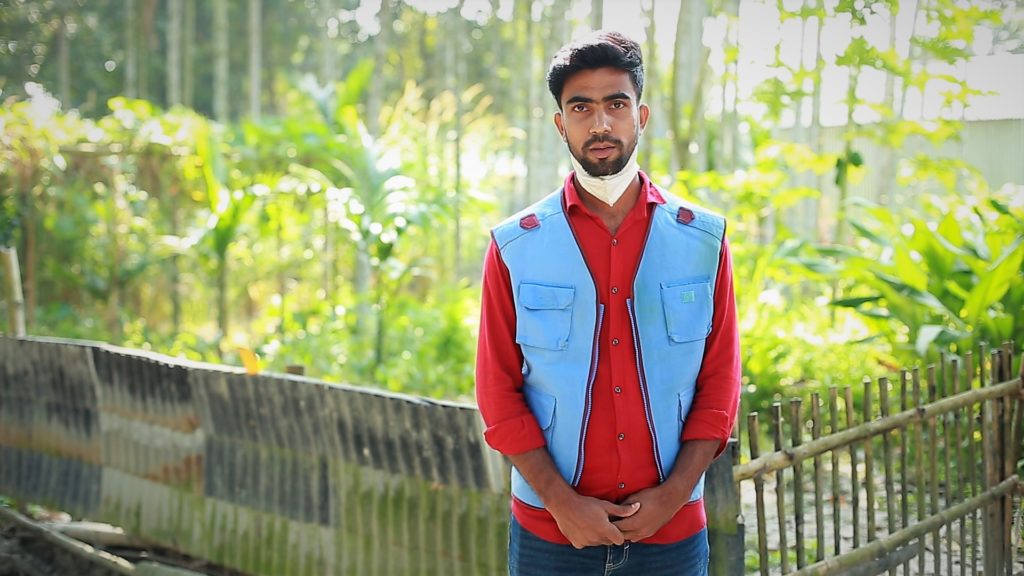
Abdul Kasem espouses knowledge about first aid, for himself and Kazaikata village, in Rowmari, Kurigram. Up in the remote, northern delta, climatic disasters are common—floods, storms, land erosion. But healthcare is far and away. Being a Friendship Disaster Volunteer Team Leader, he maximises on the training he receives from Friendship. He ensures that both his team, and the community he works with, can administer first aid when the need arises.
Ask from the relatively rich, give to the extremely poor
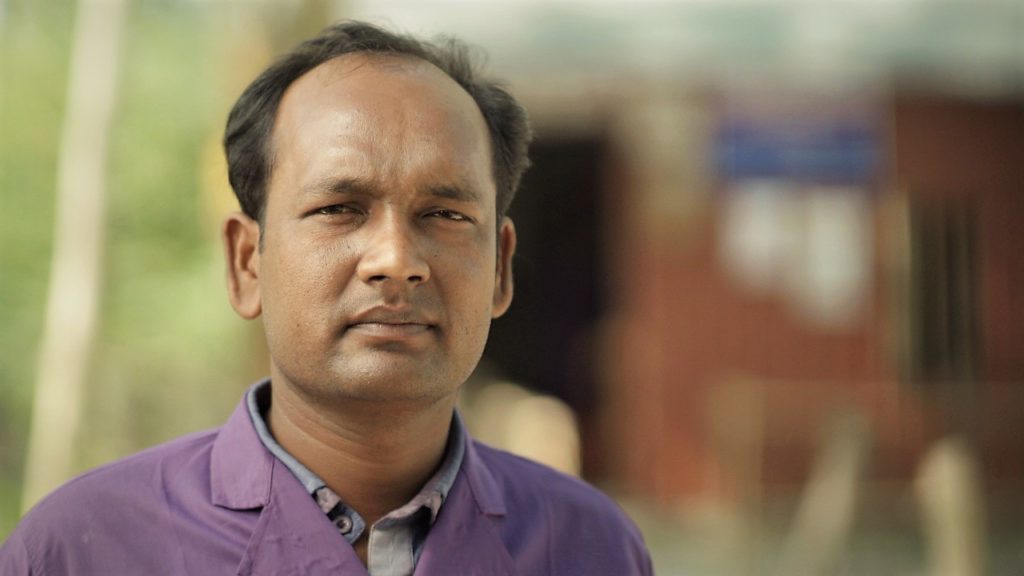
Poverty is non-linear, and relative. Even poor communities in remote, rural, sedimentary deltas, there are the haves, and the have-nots. Sometimes having a handful of rice to spare is a privilege, and not one that everyone has. When the Covid-19 pandemic hit these isolated islands, that difference became stark. So, Almas Hossain, a Friendship Community Paralegal, and other Friendship field staffers, arranged to set up foodbanks where those willing and able to spare a morsel could donate so those in dire need would not starve.
Almas has since passed away. His obituary is posted here.
The Spirit of Youth
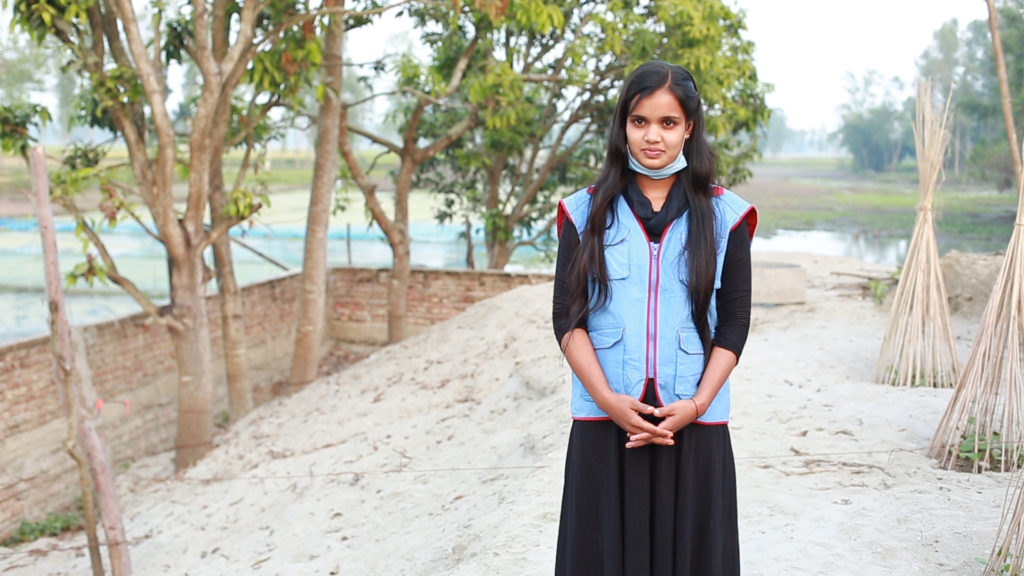
Ramzan Ali, from Phulkar Char, a remote deltaic island in the north of Bangladesh, lost his stockpiles of grain, his crops, livestock, and his arable plot in the 2019 floods. But his house and many valuables were saved by a team of Friendship Disaster Volunteers, led by Jhanufa Akter, 18. The team of disaster volunteers used the search and rescue techniques they had learned and strategies developed through the year to save lives and property in their communities.
Leave the Light On
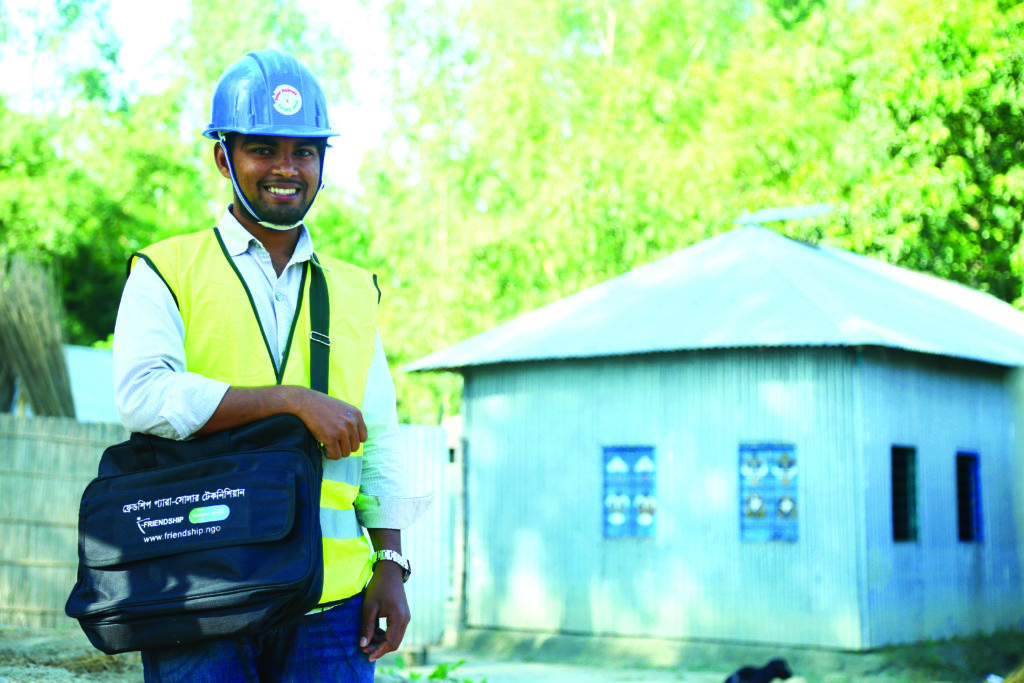
Riverine deltas like Goynar Potol, in the remote district of Kurigram are hostage to climate change. Storms, land erosion and floods deprive people of infrastructure or access to many vital services. Permanent infrastructure is impossible to install here because of the temporal nature of the land, therefore Goynar Potol is off the national electric grid. Nevertheless, Sabuj Ahmed, a Friendship Para-Solar Technician, makes sure that his community gets to keep the lights on, by supplying, installing, maintaining and repairing Solar Home Systems. Now, shops stay open late, mobile phones stay charged and students can study after dark in these isolated islets.


